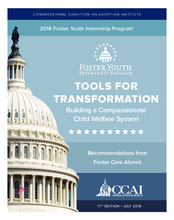Displaying 201 - 210 of 510
In an explorative manner, the current study investigates variables that influence psychological evaluators’ recommendations in child protection cases.
This study assesses prevalence of substance use, and the impact of housing instability. and independence preparation on substance use in two samples: youth currently in-care and former foster youth.
The aim of this study is to examine whether youth in foster care receive services according to need, by using a multi-informant design.
This research investigated the prevalence of looked-after and adopted young people within a case file review of 185 young people referred to a UK gender identity development service over a 2-year period (1 April 2009 to 1 April 2011).
This study compared the prevalence of mental health and psychosocial problems between left-behind children (LBC) and controls in Sichuan province, China.
The objective of the mission was to gather data on Honduras as a case study to support the IFRC global study on smart practices for protecting unaccompanied and separated children (UASC) from sexual and gender-based violence (SGBV) through health and psychosocial services in last mile locations.
This paper reviews the Healthy Young Minds (HYMs) program for looked after children in Tameside & Glossop, UK.
The objective of this study was to determine if a school support intervention for adolescent orphans in Kenya had effects on mental health, a secondary outcome.
The study addresses the needs of Scottish kinship carers of teenage children who have been identified as being in need of extra support.
CCAI’s Foster Youth Internship Program® is a highly esteemed congressional internship for young adults who spent their formative years in the U.S. foster care system. In this annual policy report, the interns focus on subjects they are personally passionate about due to their experiences and understanding after living in foster care and make personal recommendations for improving the U.S. foster care system.



